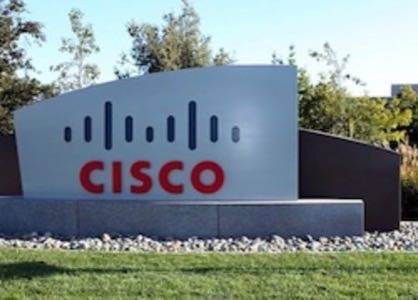Cisco Systems is the latest of the tech industry’s old guard struggling to grow in a technology market being upended by new technology. On Monday, the same day the largest maker of computer networking equipment revealed it was cutting 1,300 jobs, VMware announced it was buying Nicira, a key player in network virtualization that is becoming a major threat to Cisco.

Software-Defined Networking
Nicira’s software acts as an intelligent layer that sits on top of data-center servers and manages and controls the resources and capacity of networking gear. The company’s technology, called software-defined networking (SDN), makes it possible to run data-center networks much more efficiently. That may be good for networking customers, but it means less hardware purchased from vendors like Cisco.
VMware is so confident in Nicira’s technology that it agreed to pay a hefty premium: $1.26 billion in cash and equity, which equity research firm MKM Partners estimates is 40 times the sum of Nicira’s next 12 months of revenue. The 5-year-old company had only recently shipped its first production-ready systems.

Analysts have said Nicira is a perfect complement to VMware’s leading virtualization software that makes it possible to run business applications on multiple operating systems on a single server. While Nicira makes networks more efficient by making better use of capacity, VMware does the same for servers.
“By combining Nicira’s technology with VMware’s market-leading server virtualization and cloud products, VMware today creates a clear path to becoming the most important infrastructure company across servers, networks and storage for the next 10 years,” said Ben Horowitz, a Nicira board member and a partner in Andreessen Horowitz, which was an investor.
A Risk To Cisco
Horowitz may have been giddy from all the money his company just made, but independent analysts also believed the acquisition was a big deal. MKM analyst Michael Genovese said the acquisition is a threat to Cisco, because it takes in roughly $14 billion annually from the sale of high gross-margin switches, which may become less important as technology like Nicira’s gets adopted in data centers.
“The risk to gross margins stems from the idea that the vendor-and-switch-specific software Cisco sells will become less important over time as SDN proliferates,” Genovese said in a commentary on Barron’s. “It is particularly worrisome for Cisco that VMware is the buyer of Nicira.”
Investors agreed with Genovese. Cisco shares fell nearly 6% to a 2012 low the day after the acquisition was announced. It surely didn’t help that on the same day, Cisco reported that it would cut 1,300 jobs, or about 2% of its workforce, in order to reduce costs. The company said the layoffs are needed to maintain growth in the weak economy.

Already Struggling
Even before VMware’s move, Cisco was struggling to maintain growth – especially as the trend toward cloud computing threatens to consolidate demand for its switches.
Last year, the company eliminated 6,500 jobs, or 9% of its workforce, to cut $1 billion from annual costs. The day of the Nicira deal, Cisco’s shares were down 11% for the year.
Of course, Cisco is not the only old guard maker of networking gear threatened by Nicira. The startup also worries Juniper Networks, which has a $500 million a year business in enterprise and data-center switches.
Juniper has tried to defuse upstarts like Nicira by launching its own SDN platform, called Q-Fabric. “However, competitors have done a good job of painting Q-Fabric as a proprietary SDN solution,” Genovese said. Nicira is pushing a movement toward open standards for SDN, such as Openflow and OpenStack.
“We think that Nicira’s ‘openness’ has engendered a lot of customer interest in the startup’s technology,” he said.
Those customers have included AT&T, eBay, Google and Rackspace Hosting. Such deployments have shown that Nicira has technology that works in some of the largest data centers.
Nevertheless, software-defined networking is still in its very early stages. Virtual networking still needs a certain number of physical switches on whih to run, so Cisco remains in the game. But the changes have begun, and Cisco is definitely going to be affected.
Cisco sign image courtesy of Prayitno.





















